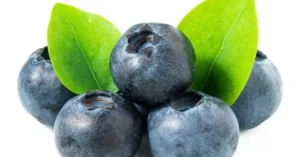Super fruits are nature’s powerhouse, brimming with vitamins, minerals, antioxidants, and other nutrients essential for optimal health. These fruits not only offer a delicious addition to your diet but also come with a myriad of health benefits, from boosting immunity to preventing chronic diseases. In this article, we’ll explore ten of the most celebrated super fruits and delve into the unique benefits each one offers.
Acai Berries

Overview
Acai berries are small, dark purple fruits native to the Amazon rainforest. They have gained popularity worldwide due to their rich nutrient profile and numerous health benefits.
Nutritional Profile
- Antioxidants: High in anthocyanins, which help combat oxidative stress.
- Fiber: Promotes digestive health.
- Healthy Fats: Contains omega-9 and omega-6 fatty acids.
Health Benefits
- Antioxidant Powerhouse: Acai berries have one of the highest ORAC values (a measure of antioxidant capacity) of any fruit. This helps protect the body against free radicals, reducing the risk of chronic diseases such as cancer and heart disease.
- Heart Health: The anthocyanins in acai berries help lower cholesterol levels, improving overall cardiovascular health.
- Anti-Aging: Antioxidants in acai berries help reduce signs of aging by neutralizing free radicals, promoting healthier skin.
Blueberries

Overview
Blueberries are small, sweet, and tangy fruits known for their high levels of antioxidants and vitamins.
Nutritional Profile
- Vitamins: Rich in vitamins C and K.
- Fiber: Good source of dietary fiber.
- Antioxidants: High in flavonoids, particularly anthocyanins.
Health Benefits
- Cognitive Function: Studies suggest that the antioxidants in blueberries can delay brain aging and improve memory.
- Heart Health: Regular consumption of blueberries is associated with a reduction in blood pressure and LDL cholesterol, lowering the risk of heart disease.
- Anti-Inflammatory: The high antioxidant content helps reduce inflammation in the body, which is linked to numerous chronic conditions.
Goji Berries

Overview
Goji berries, also known as wolfberries, have been used in traditional Chinese medicine for centuries. They are praised for their high nutrient content and medicinal properties.
Nutritional Profile
- Vitamins: High in vitamin A and C.
- Minerals: Rich in iron and zinc.
- Amino Acids: Contains 18 amino acids, including all eight essential amino acids.
Health Benefits
- Immune System Boost: The high levels of vitamins A and C help boost the immune system, protecting against illnesses.
- Eye Health: Goji berries contain zeaxanthin, an antioxidant known to protect the eyes from age-related issues like macular degeneration.
- Skin Health: The antioxidants in goji berries promote healthy skin by protecting it from UV radiation and improving skin tone.
Pomegranates

Overview
Pomegranates are vibrant red fruits packed with tiny seeds known as arils. They are celebrated for their potent anti-inflammatory and antioxidant properties.
Nutritional Profile
- Vitamins: Excellent source of vitamins C and K.
- Antioxidants: Rich in punicalagins and anthocyanins.
- Fiber: High in dietary fiber.
Health Benefits
- Heart Health: Pomegranates help lower blood pressure and cholesterol levels, reducing the risk of heart disease.
- Cancer Prevention: The antioxidants in pomegranates have been shown to inhibit the growth of certain types of cancer cells, particularly prostate and breast cancer.
- Anti-Inflammatory: Pomegranates possess strong anti-inflammatory properties that can help reduce symptoms of arthritis and other inflammatory conditions.
Kiwis

Overview
Kiwis, also known as Chinese gooseberries, are small, brown fruits with bright green or yellow flesh. They are known for their unique flavor and impressive nutrient content.
Nutritional Profile
- Vitamins: High in vitamins C, E, and K.
- Fiber: Good source of dietary fiber.
- Antioxidants: Contains flavonoids and carotenoids.
Health Benefits
- Immune Support: The high vitamin C content boosts the immune system and helps the body fight off infections.
- Digestive Health: Kiwis contain actinidin, an enzyme that aids in protein digestion, improving overall digestive health.
- Skin Health: The antioxidants and vitamin E in kiwis promote healthy skin by protecting against oxidative damage and improving skin texture.
Strawberries

Overview
Strawberries are juicy, red fruits loved for their sweet flavor and numerous health benefits. They are packed with essential nutrients and antioxidants.
Nutritional Profile
- Vitamins: Rich in vitamins C and manganese.
- Fiber: High in dietary fiber.
- Antioxidants: Contains anthocyanins, ellagic acid, and quercetin.
Health Benefits
- Heart Health: Strawberries help improve heart health by reducing cholesterol levels and lowering blood pressure.
- Anti-Cancer Properties: The antioxidants in strawberries have been shown to inhibit the growth of cancer cells, particularly in the breast and liver.
- Anti-Inflammatory: Strawberries reduce inflammation, which is linked to various chronic diseases such as diabetes and arthritis.
Avocados

Overview
Avocados are creamy, green fruits known for their healthy fats and versatile culinary uses. They offer a wide range of health benefits.
Nutritional Profile
- Healthy Fats: High in monounsaturated fats, particularly oleic acid.
- Vitamins: Rich in vitamins K, E, C, and B-6.
- Fiber: Good source of dietary fiber.
Health Benefits
- Heart Health: The monounsaturated fats in avocados help reduce bad cholesterol levels, improving overall cardiovascular health.
- Weight Management: The fiber and healthy fats in avocados promote satiety, helping with weight management.
- Skin and Hair Health: The vitamins and healthy fats in avocados nourish the skin and hair, promoting a healthy complexion and shiny hair.
Cranberries

Overview
Cranberries are small, tart fruits commonly consumed as juice or dried. They are known for their high antioxidant content and unique health benefits.
Nutritional Profile
- Vitamins: High in vitamins C, E, and K.
- Fiber: Contains dietary fiber.
- Antioxidants: Rich in proanthocyanidins and flavonoids.
Health Benefits
- Urinary Tract Health: Cranberries are well-known for their ability to prevent urinary tract infections (UTIs) by preventing bacteria from adhering to the bladder wall.
- Heart Health: The antioxidants in cranberries help reduce the risk of heart disease by improving cholesterol levels and reducing blood pressure.
- Digestive Health: Cranberries promote a healthy digestive system by balancing gut bacteria and reducing inflammation.
Papayas

Overview
Papayas are tropical fruits with vibrant orange flesh and a sweet, musky flavor. They are rich in essential nutrients and enzymes.
Nutritional Profile
- Vitamins: High in vitamins C and A.
- Enzymes: Contains papain, a digestive enzyme.
- Antioxidants: Rich in beta-carotene and lycopene.
Health Benefits
- Digestive Health: The enzyme papain aids in digestion and helps alleviate symptoms of indigestion and bloating.
- Immune Support: The high vitamin C content boosts the immune system, helping the body fight off infections.
- Skin Health: The antioxidants in papayas promote healthy skin by reducing signs of aging and protecting against UV damage.
Cherries

Overview
Cherries are small, red fruits that come in sweet and tart varieties. They are packed with vitamins, antioxidants, and anti-inflammatory compounds.
Nutritional Profile
- Vitamins: Rich in vitamins C and A.
- Antioxidants: Contains anthocyanins and melatonin.
- Fiber: Good source of dietary fiber.
Health Benefits
- Anti-Inflammatory: The anthocyanins in cherries help reduce inflammation, alleviating symptoms of arthritis and other inflammatory conditions.
- Sleep Aid: Cherries contain melatonin, a hormone that regulates sleep, helping improve sleep quality.
- Heart Health: The antioxidants in cherries help lower cholesterol levels and reduce the risk of heart disease.
1. What makes a fruit a “super fruit”?
A super fruit is typically defined by its high nutrient density, rich in vitamins, minerals, antioxidants, and other beneficial compounds. These fruits offer significant health benefits, often exceeding those of more common fruits.
2. Can I eat super fruits every day?
Yes, incorporating a variety of super fruits into your daily diet can provide numerous health benefits. However, it’s essential to consume them as part of a balanced diet to avoid excessive intake of any particular nutrient.
3. Are super fruits better than regular fruits?
Super fruits tend to have higher levels of certain nutrients and antioxidants compared to regular fruits. However, all fruits have unique health benefits, and a diverse diet that includes a variety of fruits is the best approach.
4. Can super fruits help with weight loss?
Super fruits can support weight loss by providing essential nutrients and fiber, promoting satiety, and improving overall health. However, they should be part of a comprehensive weight loss plan that includes a balanced diet and regular exercise.
5. Are there any side effects of consuming super fruits?
While super fruits are generally safe for most people, consuming them in excessive amounts can lead to digestive issues or allergic reactions in some individuals. It’s important to consume them in moderation.
6. How can I incorporate super fruits into my diet?
Super fruits can be eaten fresh, added to smoothies, salads, or yogurt, and used in various recipes. Dried or frozen super fruits are also convenient options for adding these nutritious fruits to your diet.
7. Do super fruits lose their nutrients when processed?
Some nutrient loss can occur during processing, such as drying or juicing. However, many super fruits retain most of their beneficial compounds. It’s best to consume them in their whole, fresh form when possible.
8. Can children eat super fruits?
Yes, children can benefit from the high nutrient content of super fruits. However, it’s essential to introduce them gradually and monitor for any potential allergies or digestive issues.
9. Are organic super fruits better?
Organic super fruits are grown without synthetic pesticides or fertilizers, which can be beneficial for health and the environment. While they may have higher levels of certain nutrients, both organic and conventionally grown super fruits offer health benefits.
10. Can super fruits prevent diseases?
While super fruits can significantly contribute to overall health and help reduce the risk of chronic diseases, they should not be seen as a cure-all. A balanced diet, regular exercise, and a healthy lifestyle are crucial for disease prevention.







